There’s no denying the importance of staying on top of your small business finances. Just like a well-oiled machine, your financials need to be managed effectively to ensure the success and longevity of your venture. To help you navigate the sometimes murky waters of small business finances, we’ve compiled a list of the top 5 tips to keep your finances in order.
From setting up a solid budget to tracking your expenses diligently, these tips will empower you to make sound financial decisions and steer your business towards a more prosperous future. So, grab a pen and paper, and let’s examine the world of small business finance management!
Key Takeaways:
- Separate personal and business finances: Keep a dedicated business bank account and credit card to maintain clear financial records.
- Track all expenses: Keep detailed records of all business expenses to help with budgeting and tax filings.
- Monitor cash flow: Regularly review your business finances to ensure you have enough cash to cover expenses and invest in growth.
Understanding Your Financial Position
While running a small business, it is crucial to have a deep understanding of your financial position. This involves keeping track of cash flow, maintaining a balanced budget, and staying informed about the overall financial health of your business.
Keeping Track of Cash Flow
On a day-to-day basis, monitoring your cash flow is vital for managing your small business finances effectively. Keeping track of incoming revenue and outgoing expenses helps you identify any potential cash flow issues before they escalate. Set up a system to regularly update your cash flow statements and analyze them to make informed financial decisions.
The Significance of a Balanced Budget
Cash flow is the lifeblood of your small business, but having a balanced budget is equally important. A balanced budget ensures that your expenses do not exceed your revenue, helping you avoid cash crunches and maintain financial stability. By creating and sticking to a budget, you can allocate resources strategically, prioritize spending, and plan for future growth.
Organizing Financial Records
Setting Up an Efficient Accounting System
One of the most important aspects of keeping your small business finances in order is to set up an efficient accounting system. This involves creating a system for recording all financial transactions, including sales, expenses, and receipts. By establishing a clear method for documenting your financial activities, you can easily track your cash flow and monitor your business’s financial health.
Using Technology for Financial Record-Keeping
One way to streamline your financial record-keeping is by leveraging technology. There are many software programs and online platforms available that can help you manage your finances more efficiently. These tools can automate processes such as invoicing, expense tracking, and financial reporting, saving you time and reducing the risk of manual errors.
Accounting software can also provide valuable insights into your business’s financial performance, helping you make informed decisions and plan for the future. It’s worth investing in a reliable accounting system that suits your business’s needs and will grow with you as your business expands.
Tips for Improving Income
Now, let’s explore into some practical tips for boosting your small business income. Perceiving opportunities to enhance your revenue can make a significant impact on the financial health of your business.
Diversifying Revenue Streams
Revenue diversification involves generating income from various sources to reduce dependence on one sole revenue stream. By expanding your product line, targeting new markets, or offering additional services, you can create multiple streams of income. This strategy not only helps in increasing your income but also minimizes the risks associated with relying on a single source of revenue.
Strategies for Increasing Sales and Reducing Costs
To improve your income, consider implementing strategies that focus on increasing sales and reducing costs simultaneously. Analyze your current pricing strategy to ensure that it reflects the value your products or services provide to customers. Additionally, look for opportunities to streamline your operations and negotiate better deals with suppliers to cut costs and improve your profit margins.
Strategies for boosting sales could include launching targeted marketing campaigns, offering discounts to repeat customers, or exploring new distribution channels. On the other hand, reducing costs might involve renegotiating contracts with vendors, improving inventory management, or investing in technology to automate repetitive tasks.
Planning for the Future
Many small business owners overlook the crucial step of planning for the future when it comes to their finances. Setting clear financial goals is vital to guide your business toward success. Whether it’s aiming to increase revenue by a certain percentage, reducing costs, or expanding to new markets, having specific and measurable goals in place can provide a roadmap for your business’s financial journey.
Setting Financial Goals
For small businesses, setting financial goals plays a pivotal role in ensuring long-term success and sustainability. These goals not only help you stay focused on your financial objectives but also serve as a benchmark for measuring your business’s performance. By defining realistic and achievable financial goals, you can create a clear direction for your business and make informed decisions that align with your objectives.
The Role of Forecasting in Financial Planning
With accurate financial forecasting, small business owners can anticipate future financial needs, identify potential risks, and make proactive decisions to navigate any challenges. Forecasting involves analyzing past financial data and trends to predict future outcomes, helping you allocate resources effectively and plan for various scenarios that may impact your business’s financial health.
For instance, forecasting can assist in predicting cash flow gaps, seasonal sales fluctuations, or the need for additional funding well in advance. By incorporating forecasting into your financial planning process, you can better position your small business for long-term growth and success.
Navigating Taxes and Compliance
Keeping Up with Tax Obligations
For small businesses, keeping up with tax obligations is crucial to avoid penalties and legal issues. To stay on top of your tax responsibilities, it is necessary to maintain accurate and up-to-date financial records throughout the year. Set aside time each month to organize your income and expenses, and keep track of any deductible expenses. Consider using accounting software to help streamline this process and ensure accuracy.
Understanding Regulatory Compliance
With the complex web of regulations that small businesses must navigate, understanding regulatory compliance is necessary. Compliance requirements can vary based on your industry, location, and business structure, making it crucial to stay informed about any changes that may impact your operations. It is advisable to consult with a legal or financial professional who can provide guidance on regulatory requirements specific to your business.
It is crucial to stay proactive in monitoring changes in regulations that may affect your business. By staying informed and seeking professional advice when needed, you can ensure that your business remains compliant and avoid potential legal issues down the road.
Seeking Professional Help
When to Consult a Financial Advisor
After establishing your small business, it’s crucial to know when to seek the expertise of a financial advisor. Typically, it’s advisable to consult a financial advisor during critical stages such as when you’re creating a business plan, looking to secure funding, or planning for expansion. A financial advisor can provide strategic insights and help you make well-informed decisions that align with your business goals.
The Benefits of Using an Accountant
Financial stability is paramount for the success of any small business. One of the key benefits of using an accountant is their ability to offer expert financial advice tailored to your specific business needs. Accountants can assist in managing day-to-day finances, preparing tax returns, and ensuring compliance with regulations. By leveraging their expertise, you can free up time to focus on growing your business while staying financially sound.
Using an accountant can also help in providing a clear financial picture of your business through accurate bookkeeping and financial reporting. Additionally, accountants can analyze financial data to identify trends, opportunities, and potential areas for improvement, providing valuable insights for making informed business decisions.
To wrap up
Ultimately, keeping your small business finances in order is crucial for the success and longevity of your venture. By following these top 5 tips – creating a budget, separating personal and business finances, staying on top of invoicing and billing, monitoring cash flow regularly, and seeking professional help when needed – you will be better equipped to make informed financial decisions and avoid common pitfalls. Implementing these practices will help you maintain financial stability, plan for growth, and ultimately ensure the success of your small business.
FAQ
Q: Why is it important to keep small business finances in order?
A: Keeping your small business finances in order is crucial for financial stability, planning, and decision-making. It helps monitor cash flow, track expenses, establish budgets, and ensure compliance with legal and tax obligations.
Q: What are the top 5 tips for keeping small business finances in order?
1. Maintain accurate records: Keep detailed records of all financial transactions, including sales, expenses, and invoices.
2. Separate business and personal finances: Open a business bank account and avoid mixing personal and business expenses.
3. Create a budget: Establish a budget to track income and expenses, identify areas for cost-cutting, and allocate resources effectively.
4. Monitor cash flow: Regularly monitor cash flow to ensure there is enough liquidity to cover expenses and plan for future investments.
5. Seek professional help: Consider hiring an accountant or bookkeeper to help manage finances, provide valuable insights, and ensure compliance with regulations.
Q: How often should small business owners review their finances?
A: Small business owners should review their finances regularly, ideally on a monthly basis and with a bookkeeper. This allows them to stay on top of cash flow, identify any discrepancies or financial issues early on, and make informed decisions to improve financial performance.





